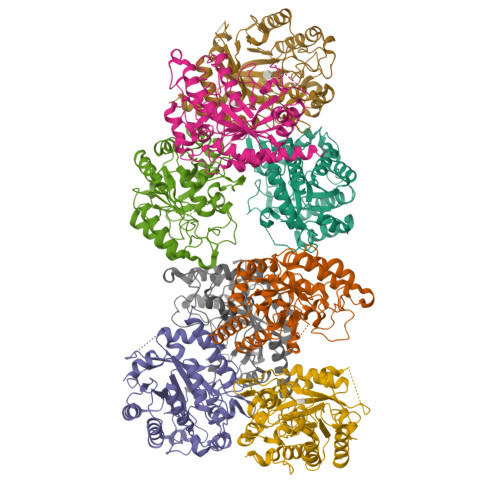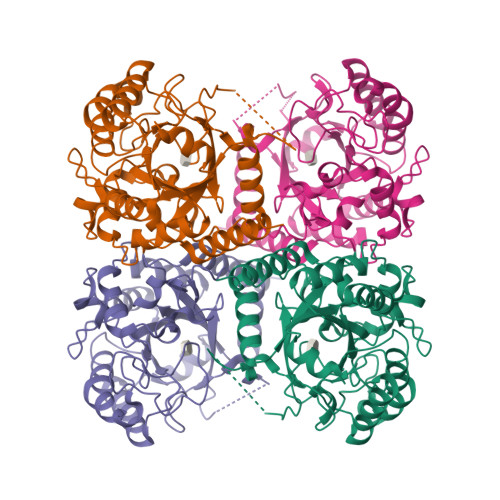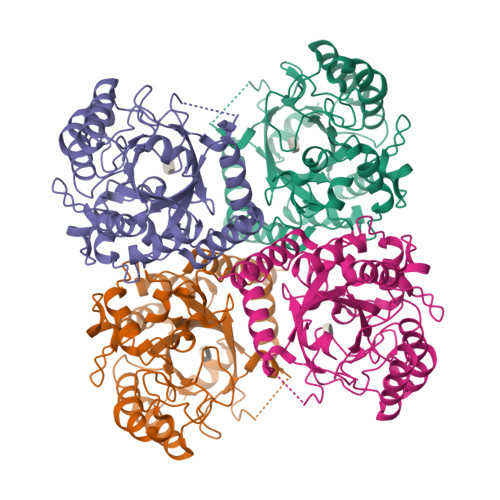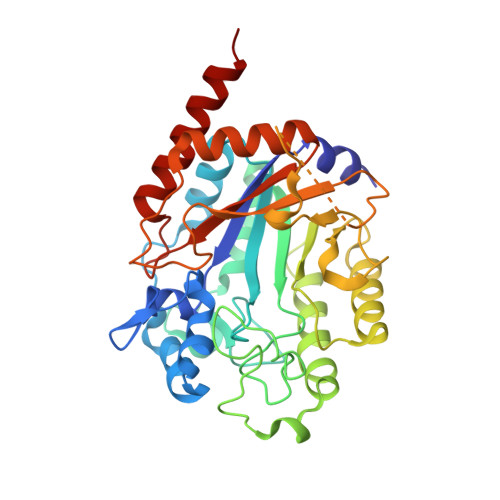Structure and dynamics of an alpha-fucosidase reveal a mechanism for highly efficient IgG transfucosylation.
Klontz, E.H., Li, C., Kihn, K., Fields, J.K., Beckett, D., Snyder, G.A., Wintrode, P.L., Deredge, D., Wang, L.X., Sundberg, E.J.(2020) Nat Commun 11: 6204-6204
- PubMed: 33277506
- DOI: https://doi.org/10.1038/s41467-020-20044-z
- Primary Citation of Related Structures:
6O18, 6O1A, 6O1C, 6O1I, 6O1J, 6OHE - PubMed Abstract:
Fucosylation is important for the function of many proteins with biotechnical and medical applications. Alpha-fucosidases comprise a large enzyme family that recognizes fucosylated substrates with diverse α-linkages on these proteins. Lactobacillus casei produces an α-fucosidase, called AlfC, with specificity towards α(1,6)-fucose, the only linkage found in human N-glycan core fucosylation. AlfC and certain point mutants thereof have been used to add and remove fucose from monoclonal antibody N-glycans, with significant impacts on their effector functions. Despite the potential uses for AlfC, little is known about its mechanism. Here, we present crystal structures of AlfC, combined with mutational and kinetic analyses, hydrogen-deuterium exchange mass spectrometry, molecular dynamic simulations, and transfucosylation experiments to define the molecular mechanisms of the activities of AlfC and its transfucosidase mutants. Our results indicate that AlfC creates an aromatic subsite adjacent to the active site that specifically accommodates GlcNAc in α(1,6)-linkages, suggest that enzymatic activity is controlled by distinct open and closed conformations of an active-site loop, with certain mutations shifting the equilibrium towards open conformations to promote transfucosylation over hydrolysis, and provide a potentially generalizable framework for the rational creation of AlfC transfucosidase mutants.
Organizational Affiliation:
Institute of Human Virology, University of Maryland School of Medicine, Baltimore, MD, 21201, USA.




















